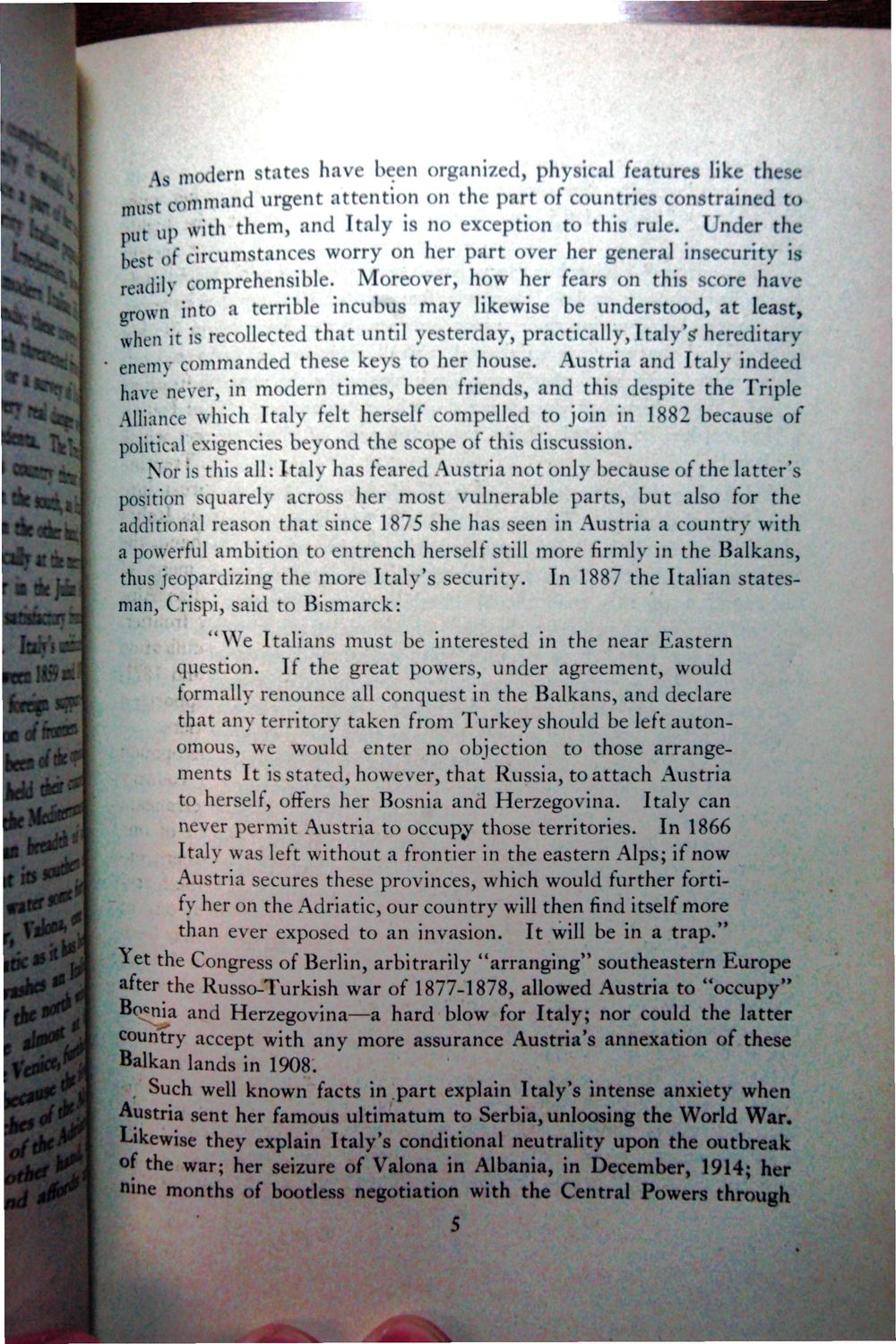| |
| |
Caption: War Publications - WWI Compilation 1923 - Article 18
This is a reduced-resolution page image for fast online browsing.

EXTRACTED TEXT FROM PAGE:
\$ nicKlern states have been organized, physical features like these ost cotnmand urgent attention on the part of countries constrained to nut up frith them, and Italy is no exception to this rule. Under the best of circumstances worry on her part over her general insecurity is readily comprehensible. Moreover, how her fears on this score have grown into a terrible incubus may likewise be understood, at least, when it is recollected that until yesterday, practically, Italy's hereditary enemy commanded these keys to her house. Austria and Italy indeed have never, in modern times, been friends, and this despite the Triple Alliance which Italy felt herself compelled to join in 1882 because of political exigencies beyond the scope of this discussion. Nor is this all: Italy has feared Austria not only because of the Iatter's position squarely across her most vulnerable parts, but also for the additional reason that since 1875 she has seen in Austria a country with a powerful ambition to entrench herself still more firmly in the Balkans, thus jeopardizing the more Italy's security. In 1887 the Italian statesman, Crispi, said to Bismarck: "We Italians must be interested in the near Eastern question. It the great powers, under agreement, would formally renounce all conquest in the Balkans, and declare that any territory taken from Turkey should be left autonomous, we would enter no objection to those arrangements It is stated, however, that Russia, to attach Austria to herself, offers her Bosnia and Herzegovina. Italy can never permit Austria to occupy those territories. In 1866 Italy was left without a frontier in the eastern Alps; if now Austria secures these provinces, which would further fortify her on the Adriatic, our country will then find itself more than ever exposed to an invasion. It will be in a trap." i et the Congress of Berlin, arbitrarily "arranging" southeastern Europe after the Russo-1 urkish war of 1877-1878, allowed Austria to "occupy" Bocnia and Herzegovina—a hard blow for Italy; nor could the latter country accept with any more assurance Austria's annexation of these Balkan lands in 1908. , Such well known facts in part explain Italy's intense anxiety when Austria sent her famous ultimatum to Serbia, unloosing the World War. Likewise they explain Italy's conditional neutrality upon the outbreak °f the war; her seizure of Valona in Albania, in December, 1914; her nine months of bootless negotiation with the Central Powers through 5
| |